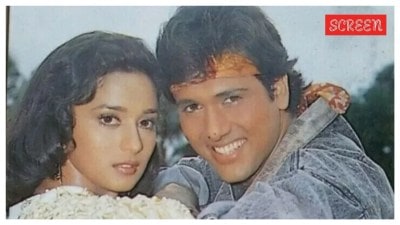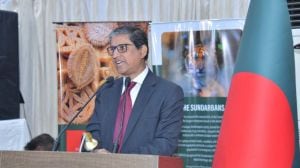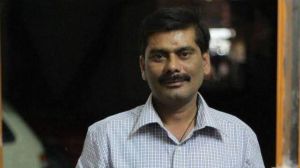Dr. MC Sudhakar, MLA from Chintamani constituency in Chikkaballapur district and a dental surgeon, speaks to the Indian Express about his actions on the National Education Policy (NEP) 2020, funding issues in the higher education department, reservation for Kannadigas, and much more.

A: The meeting was positive, and we discussed various aspects of the higher education system in Karnataka. We addressed the need to fill vacancies in higher education institutions and implement academic interventions to enhance the employability of graduates across different fields. Infrastructure deficiencies and financial requirements were also part of the discussion, along with reviewing budgetary allocations over time.
Q: The demand to scrap NEP 2020 among some academicians and politicians is increasing. What is your decision on NEP?
A: It is important to understand that implementation takes time. While the manifesto provides an outline, we must thoroughly examine the depth and specifics of the policy before making a decision. We won’t unnecessarily delay the process, and we expect to reach a conclusion in a few days. I don’t anticipate any issues with regard to Congress’ action on NEP.
Q: Was NEP discussed in today’s meeting?
A: No, I did not receive any inputs on NEP today. We will address it on Saturday after officials have had some time. I have requested information about NEP, as there are differences between NEP for primary/secondary education and NEP for higher education. We need to analyze whether NEP was implemented solely for political reasons or if substantial changes have occurred. Understanding the situation is crucial in determining the necessary actions based on our party’s commitments.
Q: So, will you scrap NEP?
A: Without knowing the actual facts, I cannot make assurances of scrapping NEP. We need to carefully examine the positives and negatives of the policy. Our party has suggested scrapping NEP and introducing a state education policy. We will thoroughly review it, discuss with the chief minister, and take a stand. Blindly moving forward without a thorough understanding would not be wise. The major concerns with NEP pertain to primary and secondary education, specifically syllabus changes and the 5+3+3+4 model. While the BJP announced and attempted to implement NEP in higher education, it hasn’t been fully executed. Before making a decision, I need to delve deeper and understand the situation.
Story continues below this ad
Q: With poll guarantees requiring significant fund allocation, do you believe it is a challenge for the higher education department to secure funds?
A: The challenge exists, but we have confidence in our chief minister’s ability to mobilise additional resources. Siddaramaiah is the most experienced finance minister in the country, and we trust that he will address this challenge adequately.
Q: Did you discuss the Yuva Nidhi scheme, which promises cash incentives for graduates and diploma students?
A: This matter falls under the department of skill development, not the higher education department. Skill development has all the information, and I believe a decision will be made in the crucial cabinet meeting tomorrow.
Story continues below this ad
Q: What is your stand on the demand for vertical reservation for Kannadigas at NLSIU, Bengaluru?
A: This issue was discussed in the meeting, and I have asked for more information from the department officials. National Law School was first established in Karnataka, and we have the right to review the initial agreement and understand the allocation of reservations for Kannadigas. There seems to be some confusion and lack of clarity on this matter. Without clarity, I cannot comment, but if there is a clear commitment to reservation, we will seriously consider it and ensure justice for Kannadigas. Since it is a legal matter, we will pursue it and find a solution.
Q: What is your focus now as the higher education minister?
A: More than 90% of students in higher education in Karnataka are from rural areas, with a significant representation from SC, ST, and OBC communities. Our focus will be on improving the quality of education for these rural students, including spoken English courses to enhance their confidence and prepare them for the fast-growing industry and corporate world.
Story continues below this ad
Q: The seven new universities established in Karnataka are facing financial stress. How will you tackle this?
A: Funding is not the only issue. These universities also face challenges related to assets, liabilities, division of staff, and staff pension. We will address all these problems and ensure a smooth functioning for the new universities, taking into account the concerns of the staff who may face changes in benefits when transitioning to a new university.

































